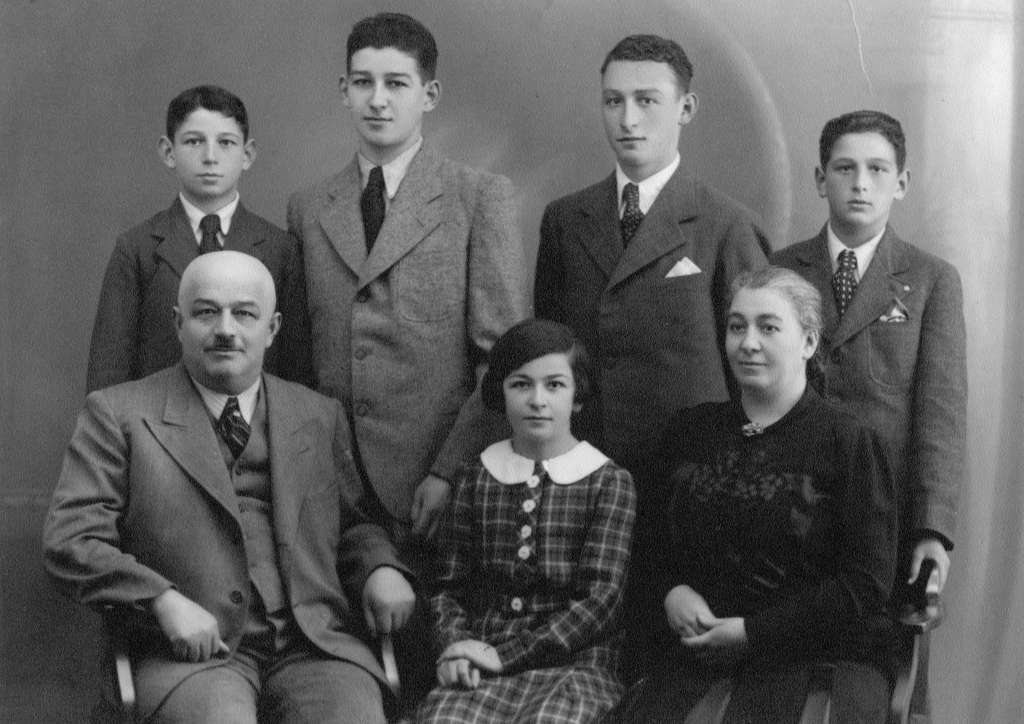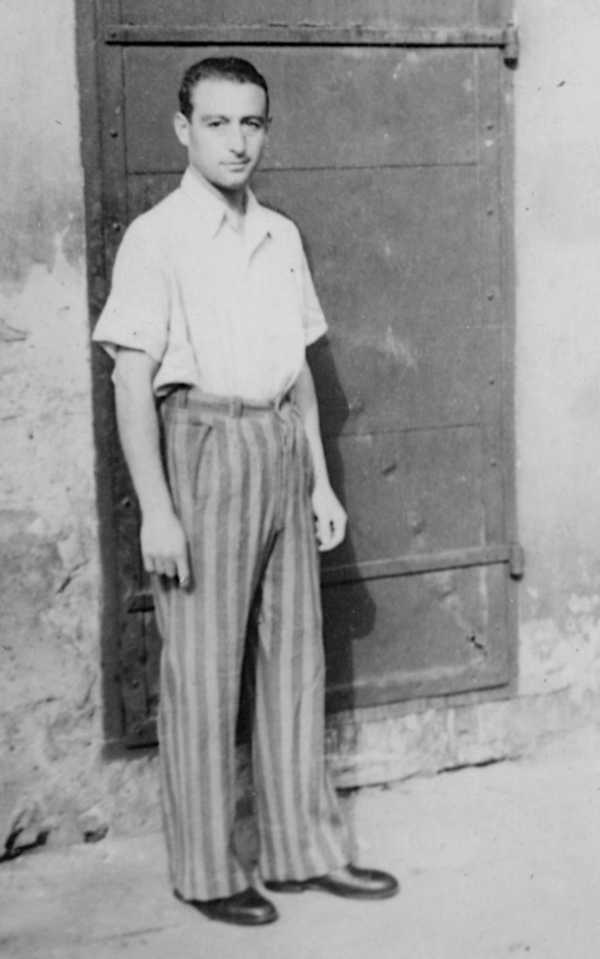
Short biography
Max Mannheimer
February 6, 1920 - September 23. 2016
1920
As the oldest child of businessman Jakob Mannheimer and his wife Margarete, Max was born in 1920 in Neutitschein, North Moravia (ČSSR), (Nový Jičín), (ČZ) 1. He grew up together with his brothers Erich (1921), Ernst (1923), Edgar (1925) and his sister Käthe (1927).
The city lives from handicrafts, a cigarette factory, hat and cloth factories. The schools were bilingual, Czech and German. After attending the commercial school, from 1934-1936, Max became an employee in a Jewish company in Znojmo, (Znojmo), South Moravia.
1935
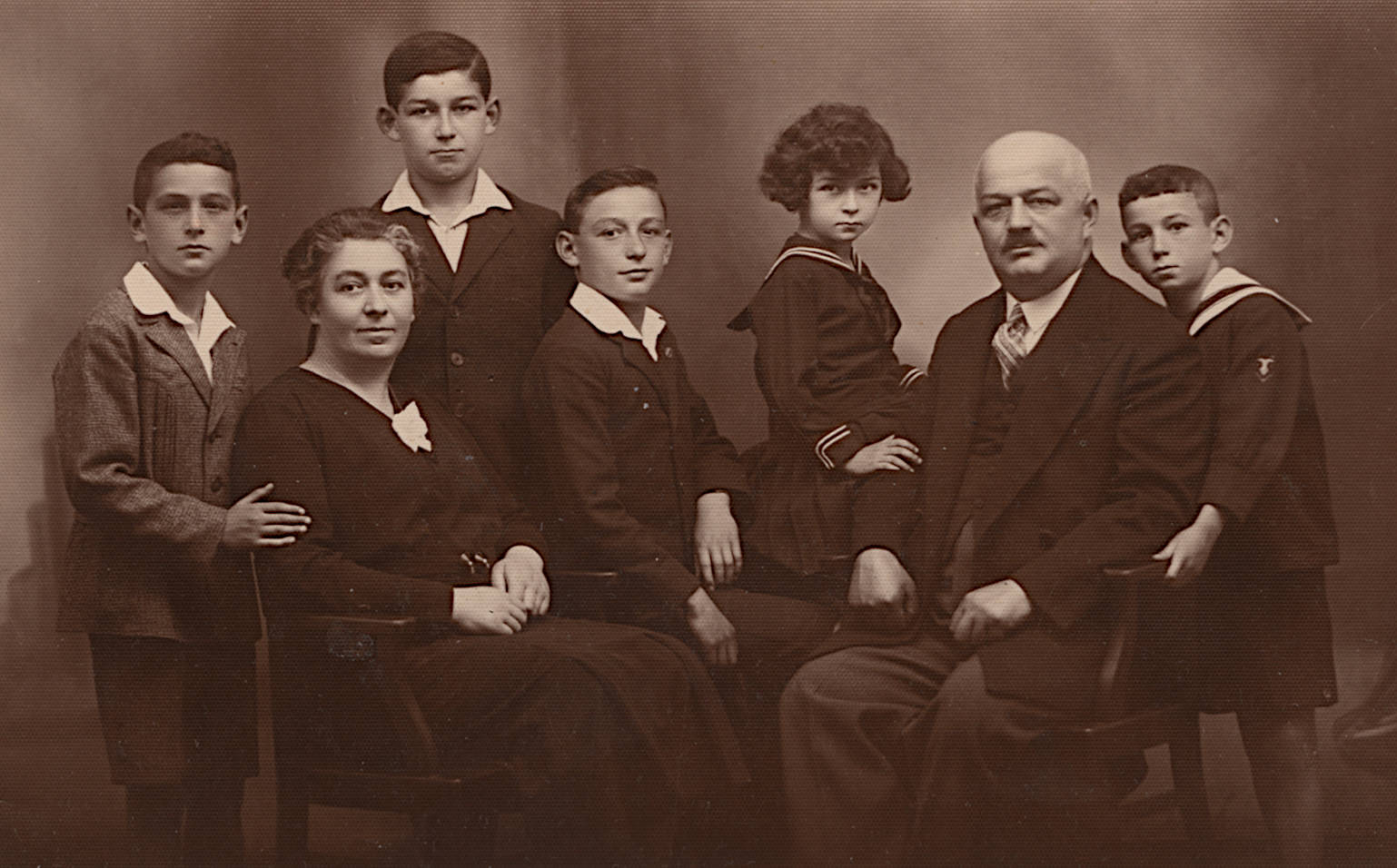
1938
When on March 12, 1938 Hitler marched into nearby Austria and occupied Czechoslovakia in October2, German troops entered Neutitschein. The cityscape is changing and with it the people: You don't buy from Jews! On November 9, 1938, synagogues were burned in Germany, Jewish businesses are demolished. The Neutitschein synagogue is looted, "Prayer books, Torah scrolls and prayer scarves lie tattered on the street" 3. Father Mannheimer is taken into protective custody until December. Max escapes prison by declaring a false age.
1939
All Jews have to leave the occupied "Reich area" in the shortest time possible. In January 1939 the Mannheimer family moved to Hungarian Brod4, (Uherský Brod), mother's birthplace. But soon the German troops move in here too, and a life of oppression, humiliation and persecution begins .
1940
Max finds a job in road construction and quarry. At the end of 1940 he met Eva Bock, daughter of a dentist, they fall in love and marry in September 1942.
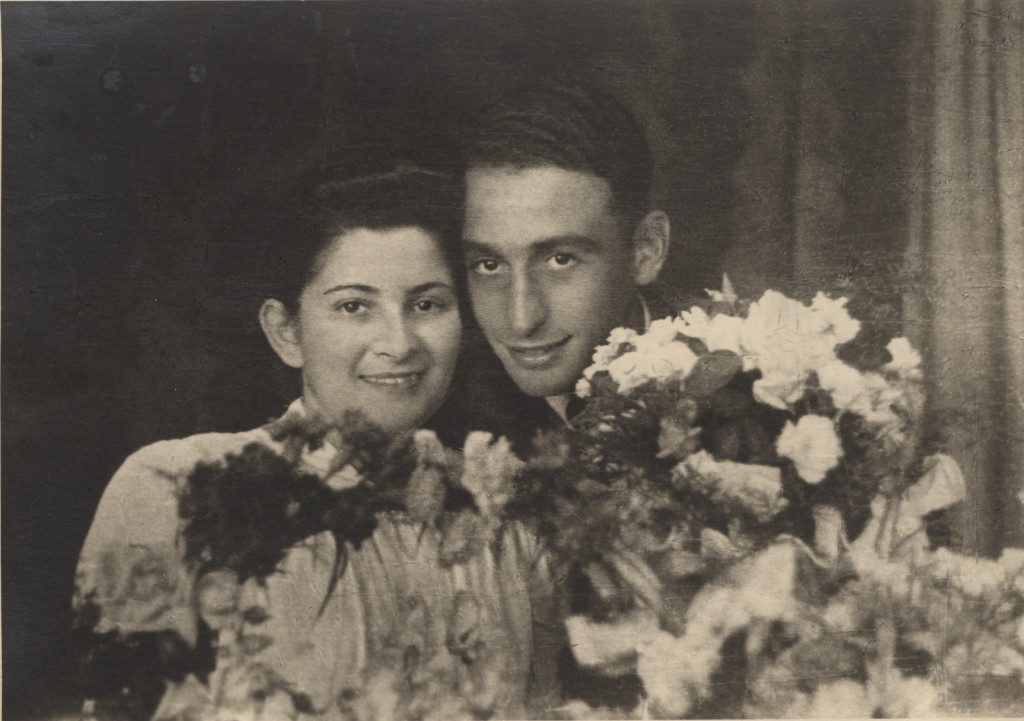
Residing and living is narrow and limited, but they are together. On January 27, a transport of Jewish men, women and children to Theresienstadt (Terezín) is put together. From this time on, the NS system only had a number instead of their names. Arrived in Theresienstadt, the deported people at last realised what was ahead of them. The will to live gives hope for survival. At the end of January, a transport with 1001 men and women went from Theresienstadt to Auschwitz5.
1943
In the night of February 1, 1943, life and death were decided on the death ramp. Max (23) and his brothers Ernst (19) and Edgar (17) are assigned to work; he never sees his parents, wife, sister-in-law and sister again. His brother Erich (22) had joined a resistance group in Hungarian Brod, was betrayed, tortured and gassed in Auschwitz. But Max only finds out about this from a fellow inmate a few months later.
“Early February. Without a coat. Without a hat. Without food. Without parents. Without Siblings, women. Without a home. Without help. Without hope. ”6 Four days later, on February 6, Max turns 23. The daily experience means hunger, beatings, fever, illness, death. The 7th of March brother Ernst, together with other sick inmates will be taken to death.
After six weeks of quarantine, aligned in a row they march into Auschwitz main camp. Order, discipline, cleanliness. His working group is called Huta - concrete construction. Cement and concrete transporting. With the help of his brother Max's survives surgery in the hospital twice.7 Edgar is a support and help. He is tall, imaginative and knows how to get Max into a better conditioned working group.
On October 5, 1943, Max enlisted in the transport for the Warsaw concentration camp8, the same for which Edgar was selected. They absolutely have to stay together. Anywhere but away from Auschwitz!
In Warsaw, Max is assigned to demolish the destroyed Warsaw Ghetto. Recyclable bricks have to be recovered, cleaned and collected. Later he works the night shift in the laundry. Thanks to his Knowledge of stenography and typewriting he is send to the writing room. It is winter and survival will be more secure.
1944
On July 24, 1944, the prisoners were marched westward on foot. It was a painful journey into the unknown. Many did not make it to the destination.
At the beginning of August 1944, completely exhausted, the survivors came to the Dachau concentration camp.
New numbers again. The two Mannheimer brothers carry cement and iron until January 1945 when, in the Mühldorf concentration camp, a satellite camp of Dachau, they get back together. Max is assigned to the building of an underground Aircraft factory. "The work was hard. The food was bad. There are Lice in the camp. Where there are lice there is typhoid, I get typhus. ”9
1945
With the Americans getting close, the camp is cleared. Emaciated, weakened and sick the freight train with the prisoners stops after two days, on April 30th 1945, shortly before Tutzing10. An American military column shows up.The prisoners are free.
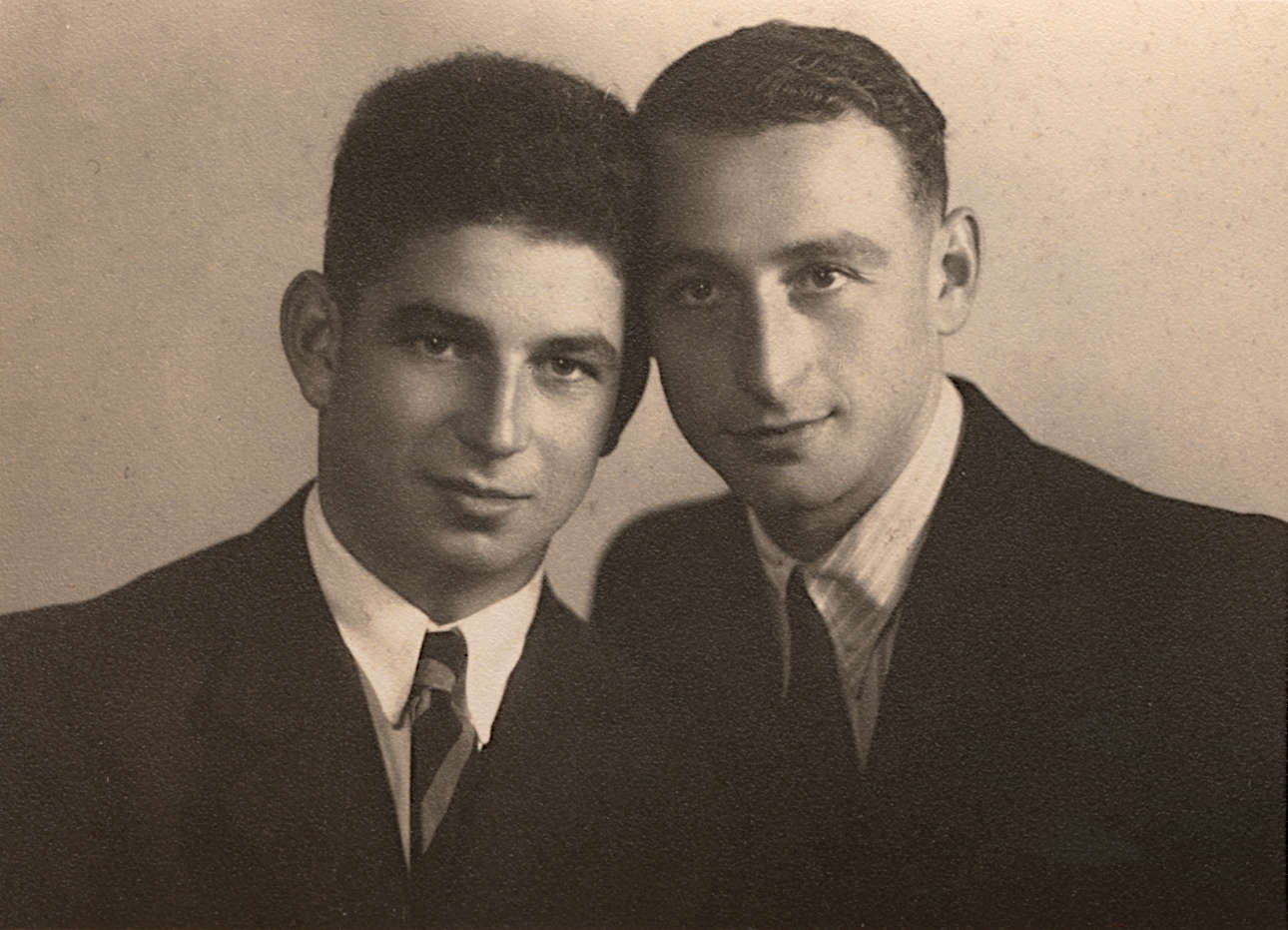
Edgar and Max 1945
Max returns with his only brother to Neutitschein (Nový Jičín). Family, friends, relatives are missing. The city, the people, everything has changed.
He met the German Elfriede Eiselt, who was coming from a social democratic family 11. Impressed by her political attitude and admiring her resistance activity, he falls in love with her. With their daughter they cross the border to Germany in 1946.
bis 2016
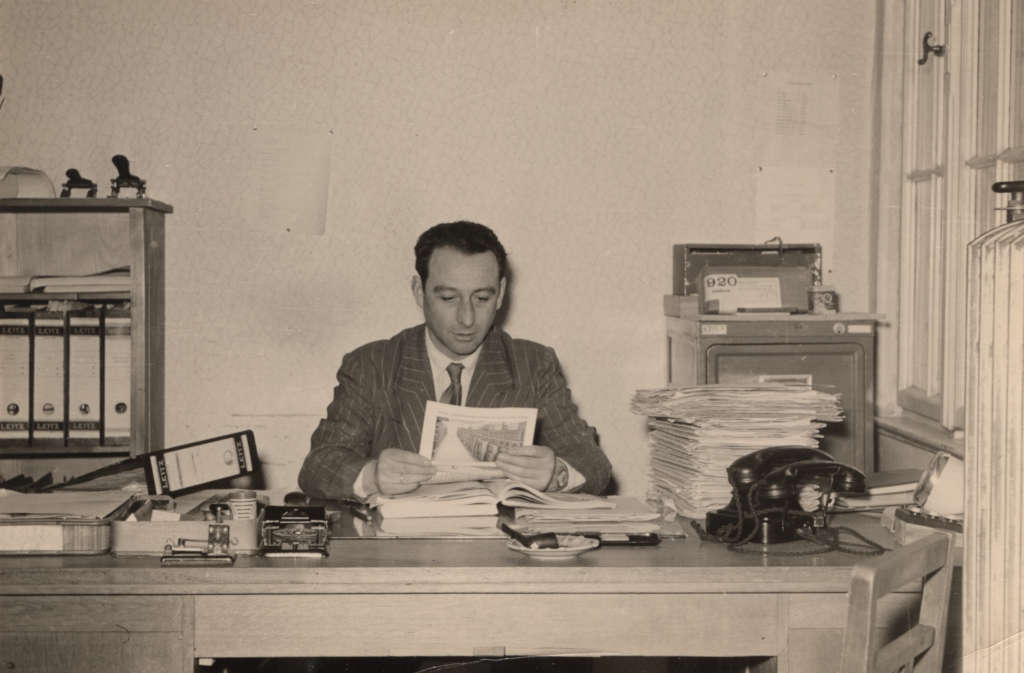
1955 at Joint in Frankfurt
Max worked for Jewish charities and various Jewish Companies. His wife Elfriede was city councillor in Munich from 1952 to 1960. In 1964, at the age of 42, she died of cancer. Daughter Eva was just 17 years old. For her he wrote down his memories12.
Until his death on September 23, 2016, Max Mannheimer was a tireless Witnesses and defender of democracy.
"You are not responsible for what happened.
But that it won't happen again
for that you are. "
Max Mannheimer
Read more on Max Mannheimer:
several speeches




